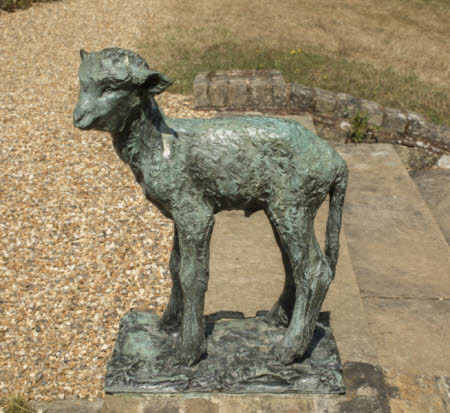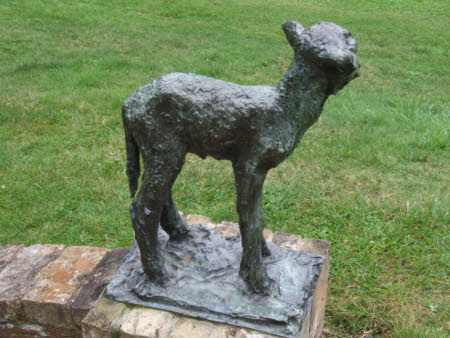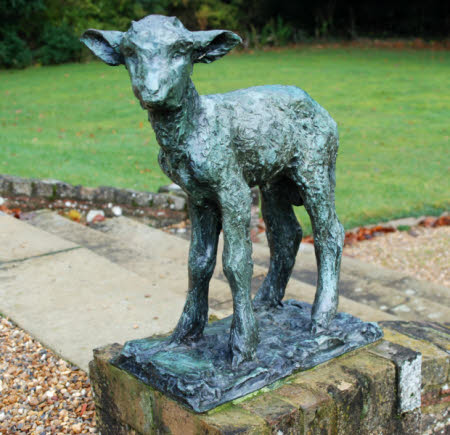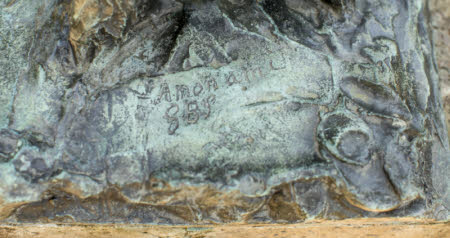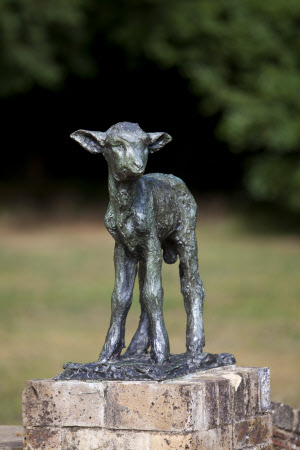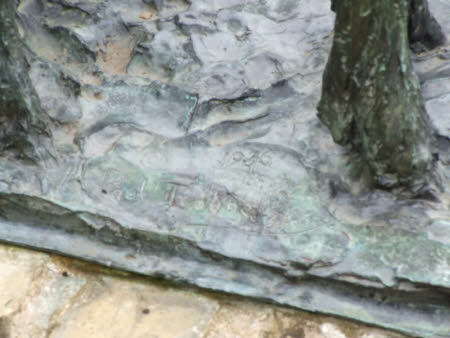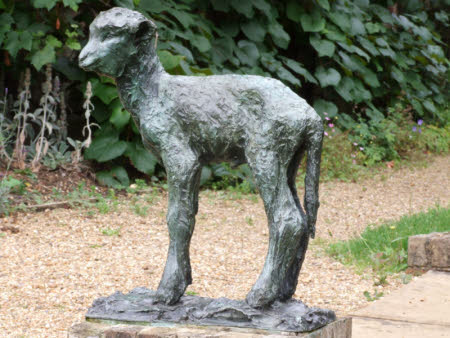Lamb
Prince Paolo (Paul) Troubetzkoy (1866-1938)
Category
Art / Sculpture
Date
1916 (signed and dated)
Materials
Bronze
Measurements
540 x 375 x 240 mm
Order this imageCollection
Shaw's Corner, Hertfordshire
NT 1275315
Summary
This item was stolen on 20th September 2023. If you have any information concerning this item, please contact the National Trust at Shaw's Corner on 01438 820 307. Or contact the Operational Risk Department of the National Trust by email at operationalrisk@nationaltrust.org.uk, or our Supporter Services Centre on 0344 800 1895 or by email enquiries@nationaltrust.org.uk.You can provide your information anonymously. Thank you for your help. Bronze statuette of a lamb by Prince Paolo (Paul) Troubetzkoy (1866-1938), signed and dated 1916. The lamb stands alert, with head turned slightly to the left. Signature (cast) top of base: “© 1916 / Paul Troubetzkoy”. Inscribed at front of base: “A mon ami / GBS”.
Full description
Numerous photographs of Bernard Shaw posing with the Troubetzkoy lamb sculpture survive dating to the 1930s and 40s, indicating his affection for the piece. These were self-portraits, as well as press photographs. Troubetzkoy created the original sculpture in 1912, and this cast dates to 1916. The lamb was probably a gift from the sculptor to Shaw, and is inscribed “A mon ami GBS.” Troubetzkoy gave the piece the title “How could you eat me?” (John Grioni, “A Lifetime Friendship (George Bernard Shaw and Paul Troubetzkoy)” The Independent Shavian, vol.44, nos.1-2, 2006, p.12). Shaw and Troubetzkoy were friends for over thirty years, a reflection of their shared love of animals and vegetarianism. In 1931 Shaw wrote the preface to Troubetzkoy’s London exhibition at Colnaghi’s gallery, where 3 bronze portraits of Shaw were on show. Shaw described Troubetzkoy as a “humanitarian who can do anything with an animal except eat it”, noting that “it is as a faithful vegetarian that I am immortalized in bronze in this exhibition.” (Shaw, ‘A Word’, Sculpture by Prince Paul Troubetzkoy, London, P.&D. Colnaghi, December 1931). Shaw continued his praise: “When he models an animal, whether it is the tiniest domestic pet, or an overdriven carter’s horse…the result is so perfect in its truth to nature and its power of conveying some lesson or appeal, that you are rushed to the conclusion that its sculptor, like Barye [famous sculptor of animals], was born to model animals and nothing else.” For Shaw Troubetzkoy remained “one of the few geniuses of whom it is not only safe but necessary to speak in superlatives. He is the most astonishing sculptor of modern times.” There are 3 animal sculptures by Troubetzkoy in the collection.(Alice McEwan, 2020)
Provenance
The Shaw Collection. The house and contents were bequeathed to the National Trust by George Bernard Shaw in 1950, together with Shaw's photographic archive.
Credit line
National Trust Collections (Shaw’s Corner, The George Bernard Shaw Collection)
Marks and inscriptions
Top of base: © 1916 / Paul Troubetzkoy At front of base: A mon ami / GBS
Makers and roles
Prince Paolo (Paul) Troubetzkoy (1866-1938) , sculptor
References
Bernard Shaw through the camera : 1948., p.39
